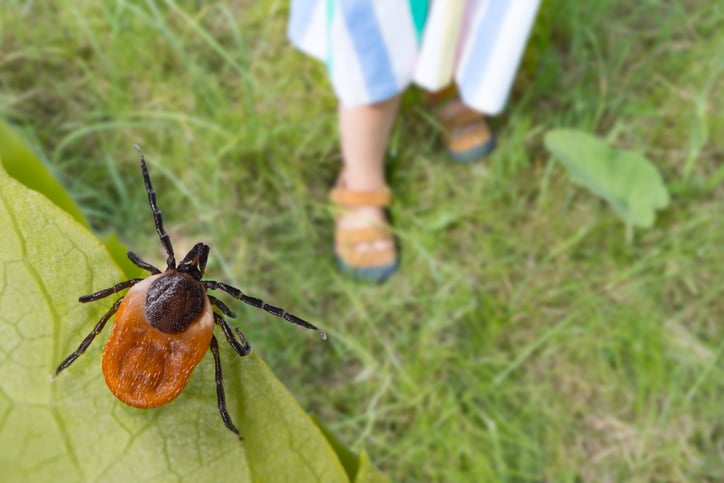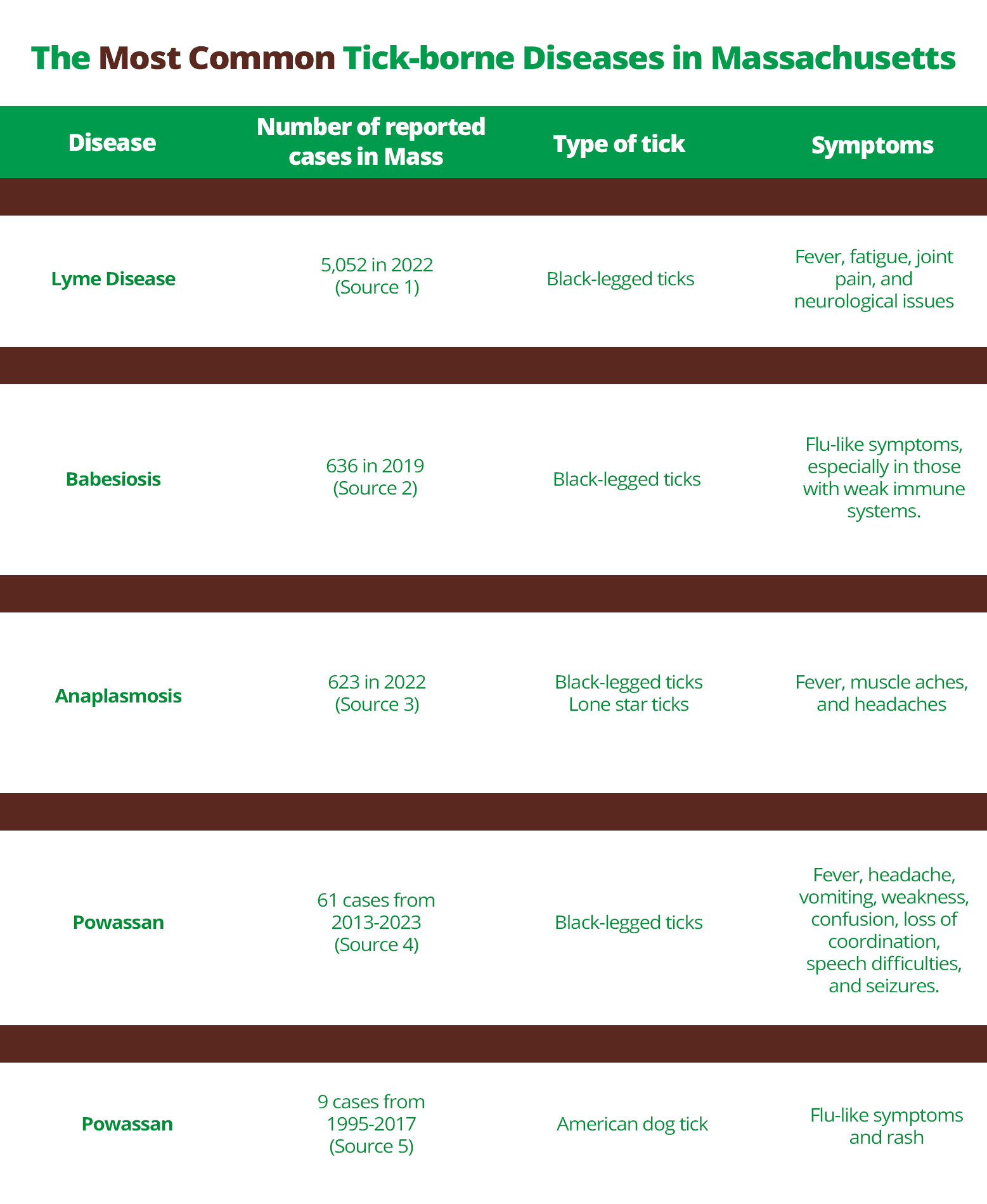Ticks are sneaky—don’t let them take over your favorite place. Your yard is where your kids play, your pets roam, and you go to unwind. But in New England, spring marks the return of tick season and the threat of tick-borne illnesses. And with the warm weather comes hidden tick risks that could threaten your entire family.
As temperatures rise, ticks become more active, lurking in tall grass, leaf piles, and wooded areas, ready to latch onto humans and pets. These parasites can transmit dangerous tick-borne illnesses with just one bite. Let’s explore the real risks in your yard and how tick prevention can help protect what matters most.
Tick-Borne Illness Risk in New England
Ticks are found in every state in the U.S., but if you live in Massachusetts or anywhere in New England, you’re at even greater risk.
Consider this:
- According to U.S. News and World Report, Massachusetts ranks #6 in the nation for tick-borne illness risk. Maine and Rhode Island also made the top 10.
- According to PetMD, Massachusetts is the #1 state where ticks are a problem for pets.
Let’s break down the most common tick-borne diseases affecting people and pets in our region.
Tick-borne Diseases in Humans
In 2022, Massachusetts reported 8,604 tick-borne disease cases. The most common include:
(Source 1, Source 2, Source 3, Source 4 and Source 5)
Many of these diseases can have long-lasting or even life-threatening complications if not caught early.
Tick-borne Diseases in Pets
Your pets are family, too, and they are especially vulnerable to tick-borne illnesses. Even indoor pets can pick up ticks while in the yard. Common tick-transmitted illnesses in pets include:
- Lyme Disease: Causes lethargy, fever, and swollen joints in dogs.
- Anaplasmosis & Ehrlichiosis: Leads to fever, joint pain, and appetite loss.
- Cytauxzoonosis (Cats): A deadly disease causing anemia and organ failure.
Tick Prevention at Home: How to Protect Your Family and Pets
The best defense is a smart tick prevention strategy. Here are some tick prevention tips you can take to make your yard safer:
- Keep grass short and mow regularly.
- Remove leaf litter and brush from around the yard.
- Use wood chips or gravel around patios and playsets.
- Apply tick treatments to your pets year-round.
- Wear tick repellent outdoors, especially if you are in wooded or grassy areas.
- Inspect yourself, children, and pets after outdoor time.
Why Professional Tick Control Works Best
When it comes to tick problems, a professional approach goes a long way. Experts know where ticks live and how to treat those hotspots based on tick lifecycles. Here’s why calling professionals like Ford’s Hometown services for tick control is your best bet:
- Fewer ticks in your yard means fewer bites and less disease risk
- Prevents future infestations by addressing the popular tick habitats
- Peace of mind for homeowners knowing your yard is being monitored and treated properly

Don’t Let Ticks Take Over Your Yard
You don’t need to go hiking to get a tick bite, you could be bitten in your own backyard. By understanding tick risks, practicing tick prevention, and getting help from professionals, you can protect your kids and pets all season long. For expert protection, contact the professionals at Ford’s Hometown Services for safe, effective tick control.


